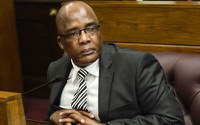
Minister blasts alcohol industry’s ‘arrogance’

Addressing delegates to the Hospital Association of South Africa’s annual conference, which draws most influential players in the private healthcare industry, Dr Motsoaledi said he hoped they would not oppose regulation with the same vehemence as the alcohol industry.
"They are saying, ‘We agree with everything you say, that there has been destruction, that its harmful abuse has left many communities destitute, that it is over-burdening the healthcare system … but whatever you do to solve them, please don’t touch us,’" he said.
The Cabinet has controversially approved a draft bill banning alcohol advertising. Although the bill has yet to be published for comment, the broad thrust of the policy has drawn extensive criticism from the alcohol industry, and sectors that depend on advertising and sponsorship.
"We are not saying ban alcohol. All we are saying is let’s save young people. The evidence is there in the townships. You don’t need a study. You can see it," said the minister.
A recent study of five Cape Town townships conducted by the Medical Research Council (MRC) and the University of Cape Town found that three-quarters of male drinkers and two-thirds of female drinkers displayed symptoms of problem drinking, according to the MRC’s Charles Parry.
Dr Motsoaledi made his remarks as the private healthcare sector prepares for a Competition Commission inquiry, which, according to acting commissioner Tembinkosi Bonakele, is slated to begin in January. The market inquiry will assess the current regulatory environment for private healthcare and its effect on competition, and may lead to regulatory changes.
The sector is also anxious about what role the state sees for it in its plans for National Health Insurance (NHI), as there have been no new policy signals since the government published its green paper in August 2011. Dr Motsoaledi said the NHI white paper — the next policy step before legislation is drafted — was "imminent". He reassured delegates he saw a future for private healthcare. "I want to put it very (clearly). I have no intention of destroying any of the healthcare systems we have got, public or private."
Netcare CEO Richard Friedland said public-private partnerships offered South Africa a way to improve healthcare quickly, as Netcare had proven with its businesses in the UK and Lesotho. Netcare won contracts from the UK’s National Health Service to provide cataract and orthopaedic services to reduce long waiting lists and has a contract with the Lesotho government to provide clinical services to a 390-bed hospital in the capital, Maseru.
